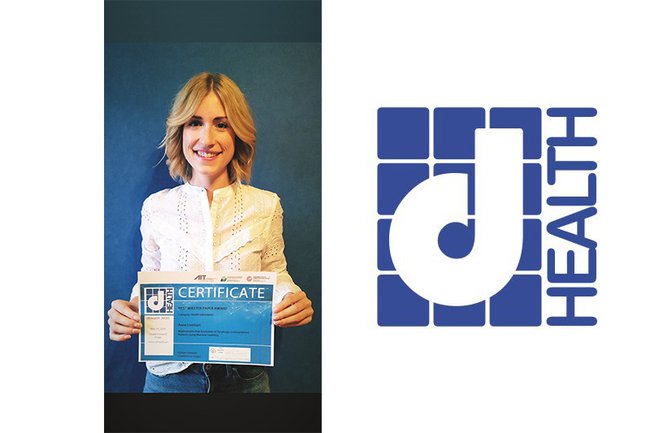Award-Winning Master Thesis at “dHealth 2020”
“Health Informatics meets Digital Health” – and the best master thesis in the field comes from our master degree student Anna Lienhart
The jury of this year’s dHealth has voted: the master thesis of our Digital Healthcare student Anna Lienhart is the best work in the discipline of Health Informatics. The title: “Multivariable Risk Prediction of Dysphagia in Hospitalized Patients Using Machine Learning”. We cordially congratulate our winner!
“In her thesis, Anna Lienhart impressively demonstrates the possibilities and potential benefits offered by digitalisation in healthcare”, explains Jakob Doppler, Academic Director of the master degree programme Digital Healthcare at the St. Pölten UAS, who is understandably proud of his student. “Ms Lienhart is going to complete her master degree programme at our university this year. We wish her all the best for the bright future that lies ahead of her!”
“I certainly did not expect this”, says Ms Lienhart, pleased about her success at the dHealth 2020. Looking back, she remembers: “As a healthcare professional, I never imagined at the beginning of my master studies that I would deal with machine learning in the course of my thesis, let alone that I would be lucky enough to participate in such a great and future-oriented project.”
For Ms Lienhart, the award is further motivation to continue to contribute new ideas for the improvement of processes in the healthcare system and in patient care – not only within the scope of her master thesis.
Using Machine Learning in Everyday Clinical Practice
The objective of Anna Lienhart’s master thesis is to develop a machine learning-based prediction model to help identify patients with an increased risk of dysphagia at an early stage of hospitalisation. Only routinely recorded data (electronic health records) were used for the development of the models. The data set itself comes from the hospital information system of Steiermärkische Krankenanstaltengesellschaft m.b.H. “Such a prediction model could enable us to take appropriate diagnostic, preventive and therapeutic steps at an early stage of hospitalisation, without increasing the documentation requirements for the healthcare personnel”, explains Ms Lienhart, emphasising the benefit of machine learning for the optimisation of work processes in the healthcare sector.
Dysphagia and its Consequences
So what exactly is dysphagia? The term refers to the difficulty or total incapacity to swallow liquids, food or drugs. It is caused by different changes of the swallowing process and is not uncommon among hospital patients: the prevalence of dysphagia in hospital patients is generally estimated to amount to 30.7 %.
Dysphagia is widespread in patients with acute or chronic neurological diseases or with malignant diseases of the head and neck. There are also numerous drugs that can cause difficulty in swallowing. Furthermore, the reduction of muscle mass in people over 65 years of age can result in a changed swallowing process, which may increase swallowing difficulties.
The consequences: dehydration, malnutrition and aspiration that may result in pneumonia. For this reason, longer hospital stays, a decline in independence and increased mortality rates can be observed among patients suffering from dysphagia.
Promising Approaches
The implementation of a standardised screening and test method for all hospital patients using the existing methods documented in specialist literature would send up the number of medical examinations and therefore mean higher documentation requirements. Also, dysphagia is easily overlooked and goes unnoticed in many cases.
This is where machine learning could provide help. Ms Lienhart is optimistic: “The first results of the master thesis on the test data set show that previously reported prediction models have been outperformed by an AUROC of 0.94. In this context, tree-based classification algorithms have been producing particularly promising results.”
Subsequently, Ms Lienhart explains, an evaluation of the models during real-time prediction will be necessary in order to determine their value in everyday clinical practice.
Studying Digital Healthcare
Apply for the master degree programme by 19 June! All information can be found here.
